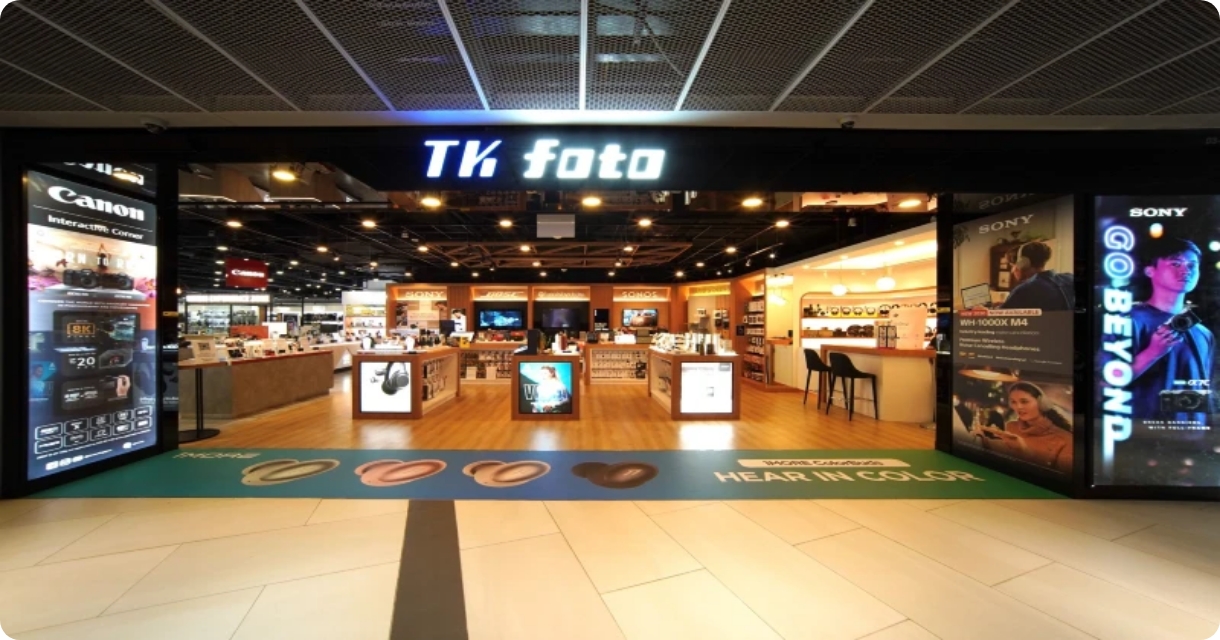
SINGAPORE – In this article, we will be sharing how one of our clients, T K Foto, decided to adopt eCommerce and managed to successfully cushion the impact Covid19 had on its physical store’s sales volume, and how they adapted using eCommerce.
As we enter the 4th quarter of 2021, we believe that our local retailers and F&B merchants have learnt several lessons in operating a business (or starting one) during this pandemic.
Some lessons include:
- Ecommerce purchasing habits is here to stay
- Adapting to pandemic changes (Covid19 measures, dining in closures)
- Taking up government assistance or subsidies, such as for upskilling purposes
Today, we will be sharing how one of our clients, T K Foto, decided to adopt eCommerce and managed to successfully cushion the impact Covid19 had on its walk in sales volume.
1. Going Digital and Sell Online
As mentioned in this news release by IMDA,
“When the news of the Circuit Breaker broke, we took about a week to get our online sales platforms updated such as increasing the range of products available,” says Mr Ng, whose physical stores carry thousands of different items ranging from cameras and lenses to photo printers and lighting kits.
Despite the sharp fall in physical retail sales in 2020, the steps taken to improve online sales by T K Foto has helped to soften the impact of COVID-19 on the company’s revenue, he shares. This is in large part due to business growth through online transactions – average monthly online sales have increased by 10 times during the crisis as compared to pre-COVID-19.
“If it hadn’t been for the Covid-19 situation, we would be seeing revenue growth this year. e-Commerce is clearly here to stay,” says Mr Ng.
The data (including consumer insights) gleaned from selling online also gave the team the confidence to launch the sale of audio accessories and equipment, a completely new product category that has proved relevant to their target consumers.” Read the full article here.
Hence, we can see how going digital not only helps to create another avenue of sales revenue for the business, but it also helps a business gather insights that is not easily obtained from physical sales.
2. Digitalisation Improves Efficiency
Another benefit is that this helps to make the business more efficient in operations and accounting. As refenced from the article,
“T K Foto’s digitalisation journey has brought about a whole other range of operational benefits as well. Time savings were dramatic – sales reports that used to take one week to generate manually now takes only 10 minutes.
Staff, by now proficient with the platform, appreciate the efficiency and have more time for customer engagement and improving product knowledge. There is also dedicated focus to manning online sales channels.”
3. Time for Upskilling
With operational matters being more efficient and taken care of, business owners can then focus on improving their sales funnel and growing their sales revenue.
In fact, one way to do so is to upskill oneself in the various aspects of digital marketing. The solution? Take up a digital marketing course in Singapore. With the many grants available, such as SME-related funding and SkillsFuture Credits, now is the perfect time to get you and your colleagues upskilled.
At FirstCom Academy, we have various digital marketing courses, be it in Facebook Ads, Search Engine Optimisation, Search Engine Marketing, or Google Analytics.
With eCommerce playing an increased presence in retail in this pandemic era, it is the time to adopt it if you as a retailer have not done so yet.


